Peking University, November 12, 2020: On November 7, Medicine, Humanity and Media (MHM 2020): “Healthy China” and Health Communication International Academic Virtual Conference took place at Peking University. The MHM 2020, a sub-forum of Beijing Forum 2020, was simultaneously held both online and offline with speakers from home and abroad delivering presentations about the core issues, theoretical concerns, and methodological challenges in the field of health communication. It attracted scholars from 14 international universities and 31 domestic universities and research institutes to join in the discussion. The sub-forum was broadcast live on Baidu and Bilibili with over 110,000 viewers in attendance.
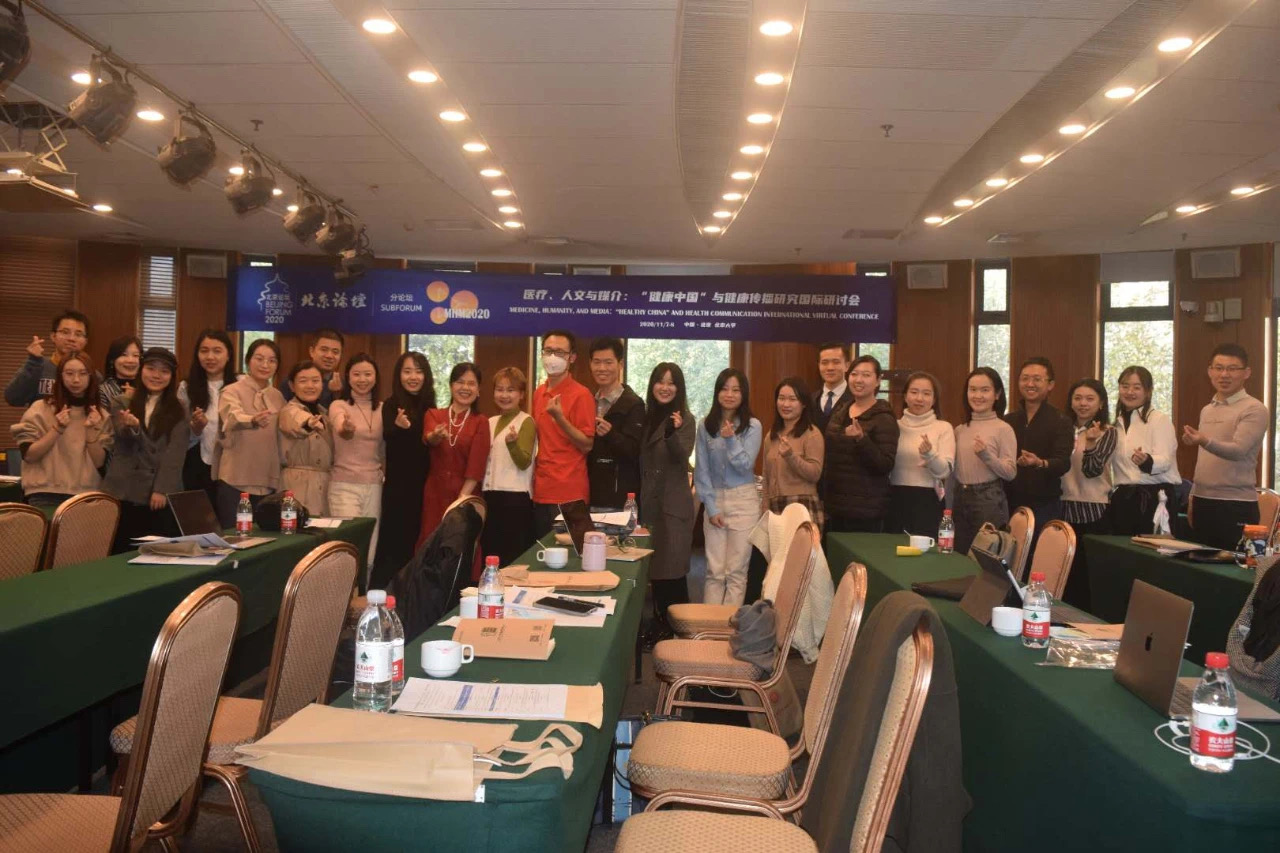
Speaking at the Opening Ceremony of the MHM 2020, Professor Xu Jing from the School of Journalism and Communication at Peking University extended her heartfelt greetings to the guests and audiences. Xu highlighted the essence of the MHM 2020 where collective intelligence directed towards a community-based approach is necessary to overcome existing public health challenges like the COVID-19 pandemic. In this vein, she admitted that “Through this Forum, we wish to move forward health communication with real community perspectives.”
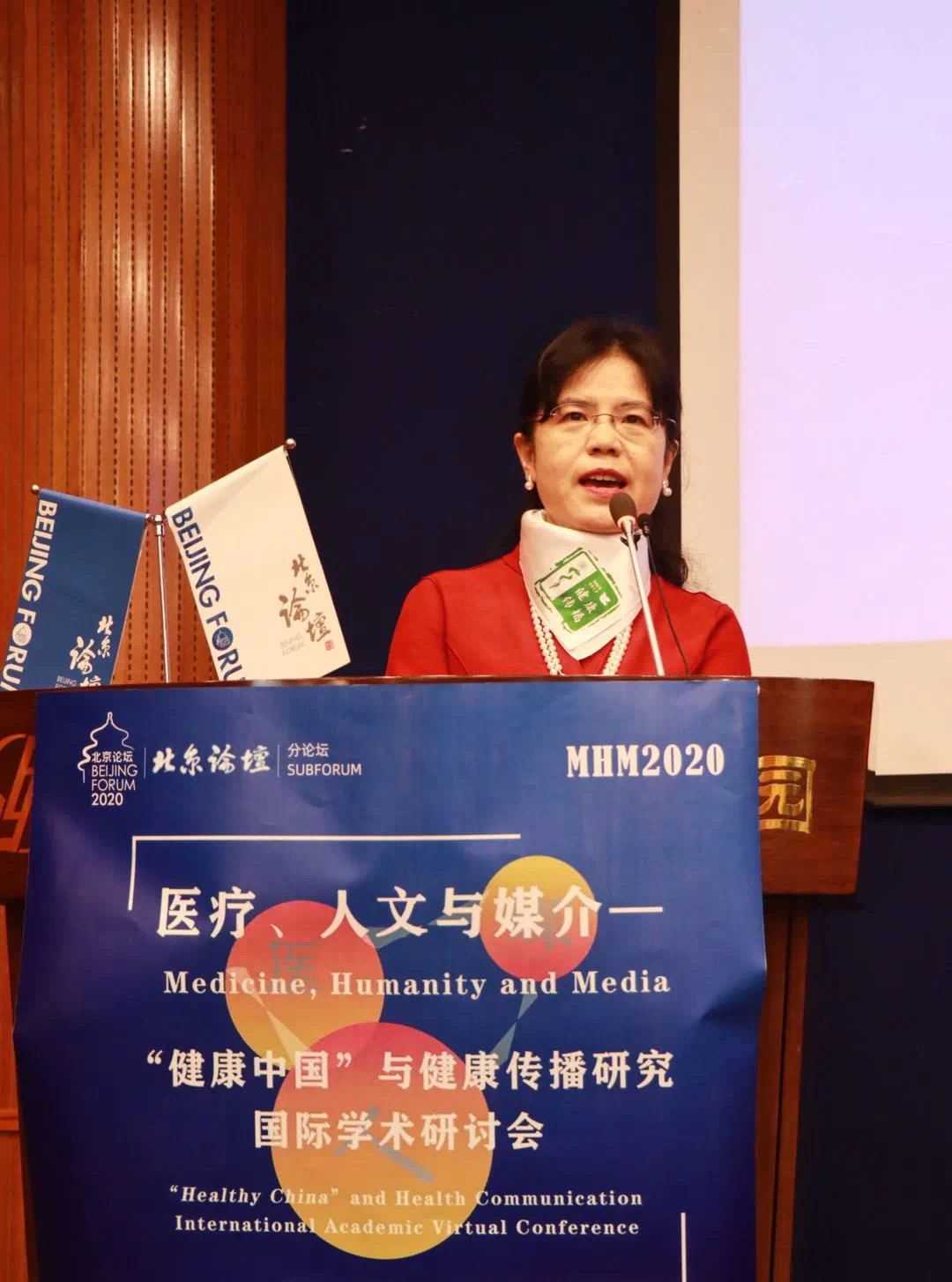
Xu Jing
Professor Wu Jing, vice dean of the School of Journalism and Communication at Peking University, delivered a speech on behalf of the host of MHM 2020. She talked about the progress made in public health communication and highlighted the importance of communication in healthcare settings. Therefore, she hopes that this year's conference can serve as a platform for health communication scholars around the world to jointly enhance public understanding in this field.
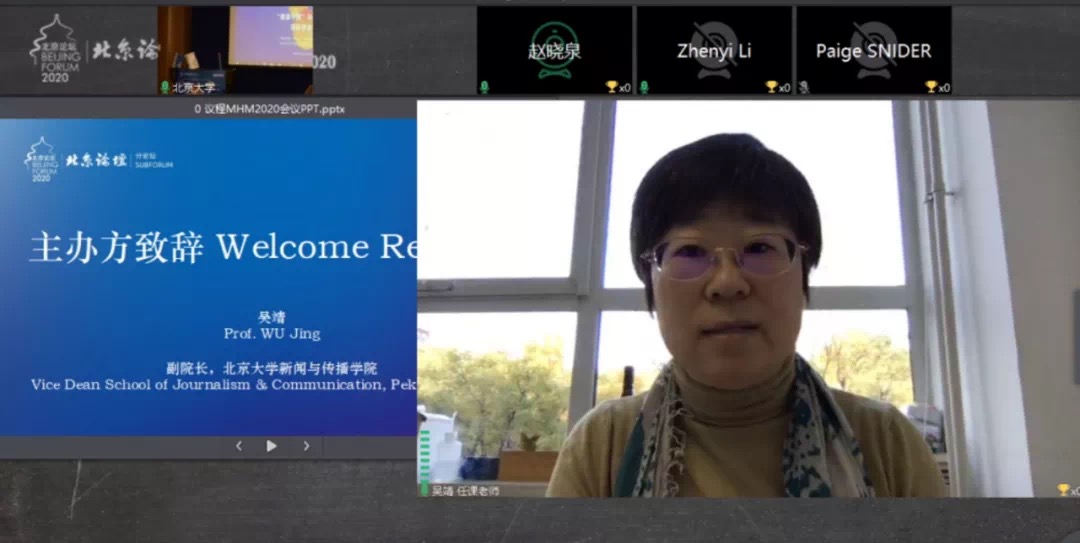
Wu Jing
Mao Qun’an, director of the Planning Development and Informatization Department of China’s National Health Commission, expounded on the efforts of the Chinese government in healthcare publicity campaigns under the "Healthy China Action" and the positive feedback those campaigns have received. He reiterated the need to maintain good personal hygiene as the main approach against COVID-19 and described existing policies towards tobacco control in China.
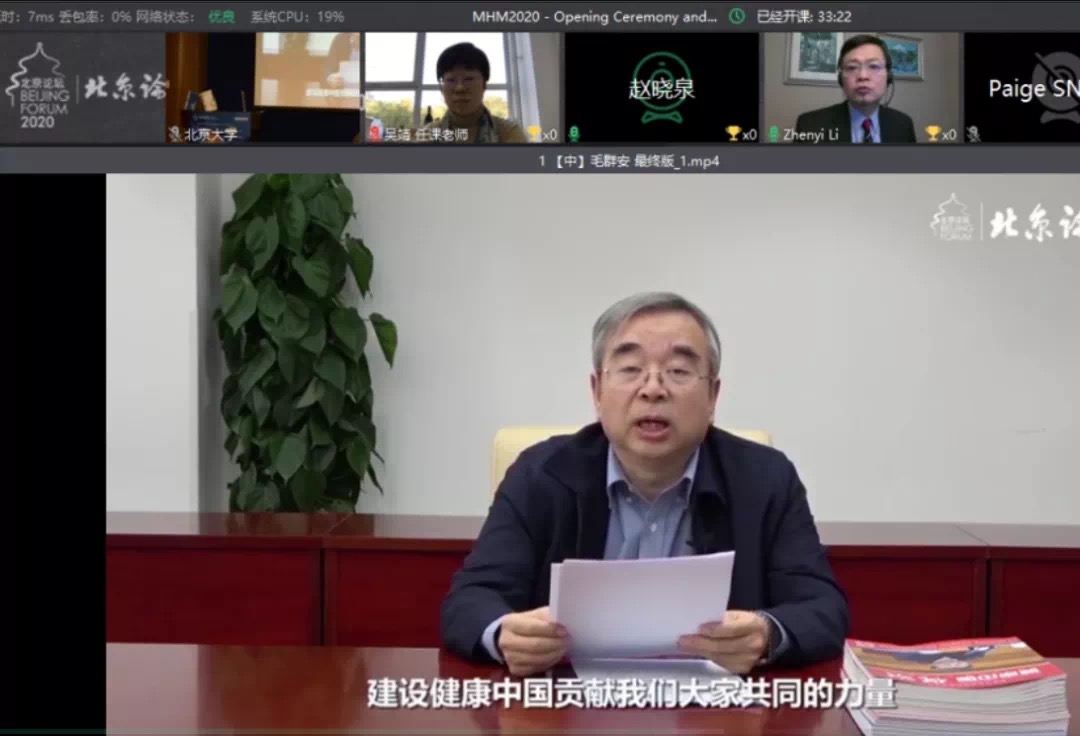
Mao Qun’an
At the keynote speaking sessions, the guest speakers shared their research findings on the role of health communication. Their presentations drew from various fields of study including communication studies, public health, strategic communication, medical and health humanities, and human rights protection, among others.
Paige Snider, senior advisor for external relations and communications at the World Health Organization China Office, discussed the difficulties her team faced in the early stages of the pandemic. She noted that governments and public health organizations had to deal with misinformation and mental health issues among the general public. So, she considered tapping into community engagement methods to increase the efficacy of existing health campaigns and equip community partners with actionable plans.
Rajiv Rimal, professor and chair of the Department of Health, Behavior, and Society at Johns Hopkins University, approached the topic of health communication from a multi-disciplinary perspective, blending sociology, economics, psychology and more. After reviewing the history and recent trends in health communication research, Rimal noted the importance of adopting a holistic and multi-disciplinary approach in the study of health communication, and he stressed that research and practice have to mutually reinforce each other. Moreover, Rimal recommended that we should focus on behavior change much more than on health outcomes. According to Rimal, if we can promote behavior change outcomes, for example by designing campaigns to promote exercise and people’s changes in diet, health outcomes like obesity will themselves be addressed.
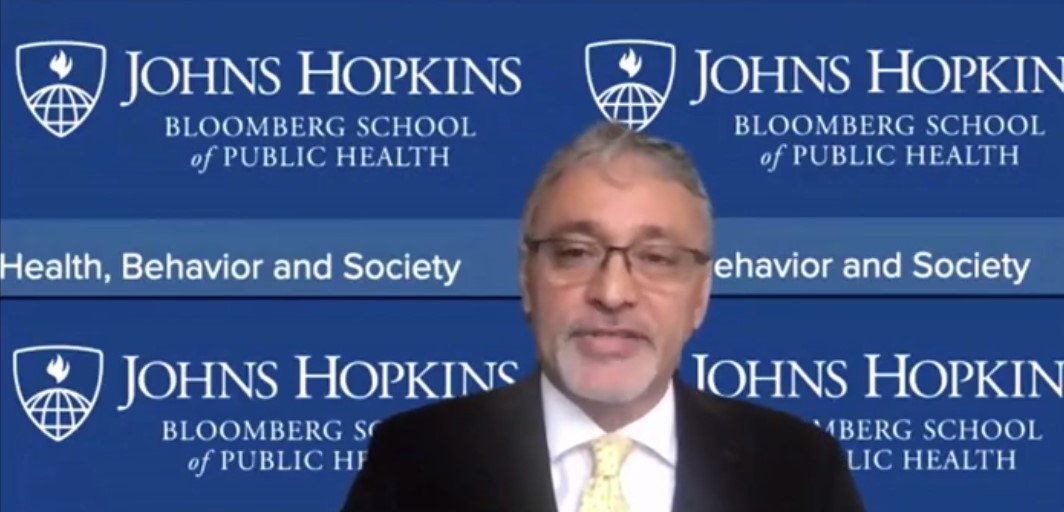
Rajiv Rimal
Amanda Caleb, professor and director of medical and health humanities and professor of English at Misericordia University, discussed the concept of health narratology which focused on the need to analyze and represent patients’ stories to improve future health results. Considering the fact that the 1918 influenza pandemic influenced COVID-19 narratives, Caleb saw health narratology as embedded in storytelling and individuals could develop their storytelling skills by reading novels and qualitative research. In this way, “future use of narratives in health communication must find ways of synthesizing multiple narratives in order to create new ones to affect constructions of health behavior,” Caleb noted.
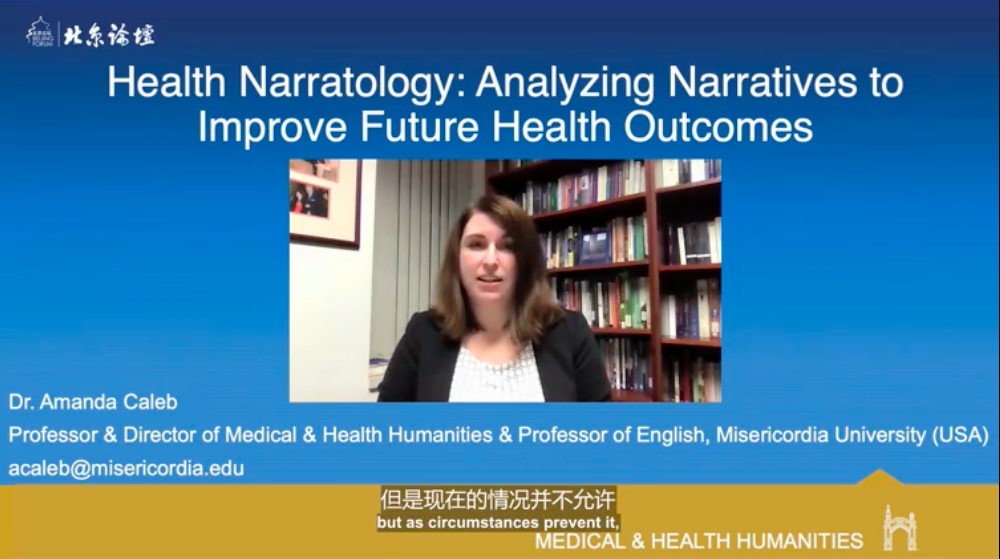
Amanda Caleb
In the second keynote speaking session, Richard Street, professor of Texas A&M University, spoke about modeling pathways in order to improve health outcomes. His research into communication in medical settings has led to positive outcomes by helping patients and medical professionals understand and convey messages to each other. For example, cancer patients have been shown to have better pain control through improved pain management in medication and dosage levels. Interventions such as preparation for patients before consultations, as well as highlighting importance of patients asking questions are seen as key to success.
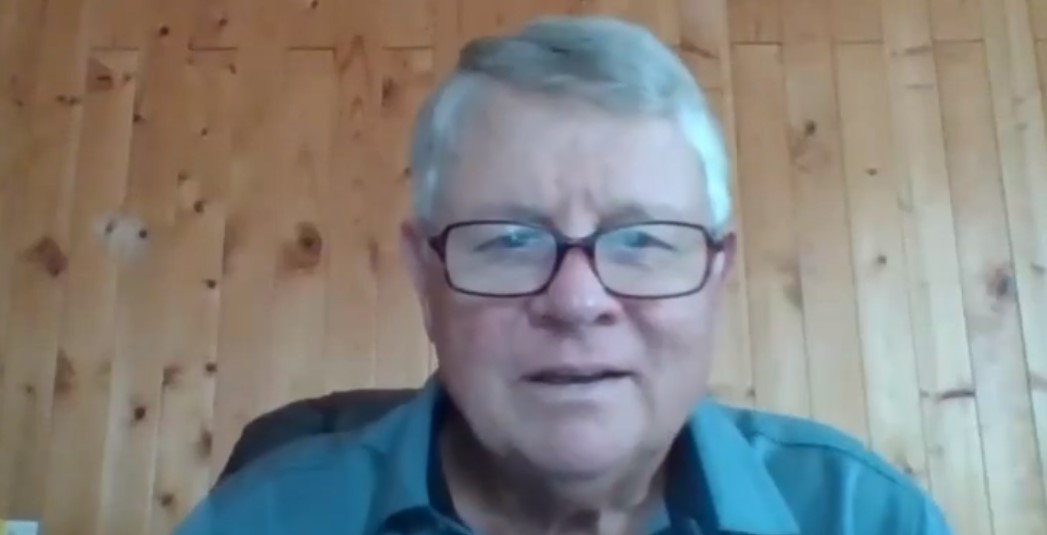
Richard Street
The other speakers talked about culture-centered approach to pandemic communication, challenges and pathways of using traditional and new media for health communication, digital technology and health communication, promoting health through effective health communication research, among others. In the afternoon and evening sessions, the speakers shared their views on public health crisis communication and risk communication, health education and health promotion, mass media and health communication.
Besides, a one-on-one mentor-mentee program was carried out during the MHM 2020. Mentors (including many speakers of MHM 2020) and mentees were matched based on their research interests, thus students can benefit from tailored advice given by their mentors. The researchers also gave a series of public lectures, and students majoring in health communication were allowed to conduct online interviews.
Additionally, a roundtable discussion on health industry development and communication was held on November 8, and there was a workshop on practical technologies for tobacco control from November 10 to November 11.
Written by: Ng Joong Hwee, Dickson David Agbaji, June Tan Rui Min
Edited by: Huang Weijian, Walker Darke
Photo credit to: Wang Siyi
Source: PKU School of Journalism and Communication, Beijing Forum Secretariat